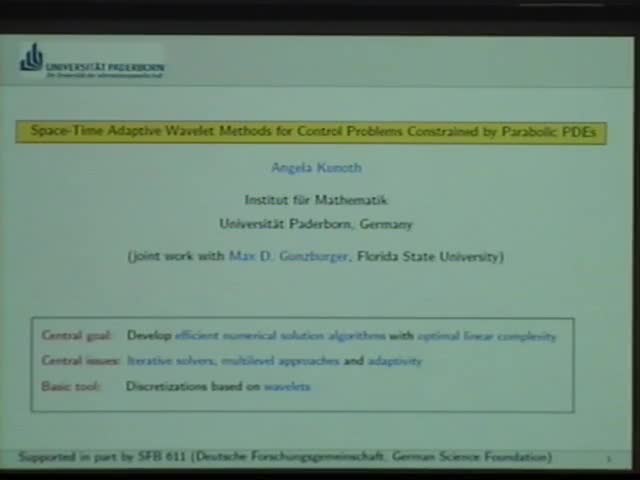Space-time adaptive wavelet methods for control problems constrained by parabolic PDEs
Presenter
November 4, 2010
Keywords:
- Wavelet
MSC:
- 42C40
Abstract
Joint work with Max D. Gunzburger, School of Computational
Science, Florida State University.
Optimization problems constrained by partial differential equations
(PDEs) are particularly challenging from a computational point of
view: the first order necessary conditions for optimality lead to a
coupled system of PDEs. Specifically, for the solution of control
problems constrained by a parabolic PDE, one needs to solve a system
of PDEs coupled globally in time and space. For these,
conventional time-stepping
methods quickly reach their limitations due to the enormous demand for
storage. For such a coupled PDE system, adaptive methods which aim at
distributing the available degrees of freedom in an
a-posteriori-fashion to capture singularities in the data or domain,
with respect to both space and time, appear to be most promising.
Here I propose an adaptive method based on wavelets.
It builds on a recent paper by Schwab and Stevenson where a single
linear parabolic evolution problem is formulated in a weak space-time
form and where an adaptive wavelet method is designed for which
convergence and optimal convergence rates (when compared to wavelet-best
N term approximation) can be shown. Our approach extends this
paradigm to control problems constrained by evolutionary PDEs
for which we can prove convergence and
optimal rates for each of the involved unknowns (state, costate, and
control).
